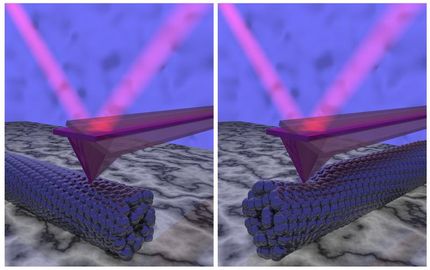Henkel cooperates with top Chinese universities
First 6 projects on applied adhesives research
In China, as of January 1st, 2005, Henkel will launch an R&D cooperation project with six leading research groups from five Chinese universities. With an initial investment of USD 500,000 in the upcoming two years, this cooperation will be the most extensive R&D project that Henkel has implemented within China. This action once again shows Henkel's commitment to the Chinese market.
Professors from five leading Chinese universities exchanged the R&D Cooperation Agreements with representatives from Henkel R&D in Germany, Henkel Technologies Asia-Pacific, and Henkel Technologies China. With this ceremony in Shanghai on November 26, 2004, the biggest R&D cooperation project Henkel has embarked on in China officially kicked off.
The cooperation program will start with a first 6 projects between the Henkel Technologies and Consumer and Craftsmen Adhesives business sectors and five leading Chinese universities, including Tsinghua University, Shanghai JiaoTong University, Fudan University, Nanjing University, and Shandong University The selection criteria are primarily based on the expertise of the professors and the reputation and facilities of the universities. The sub-projects will officially commence on January 1, 2005, with preliminary work to start as early as December 2004.
"The cooperation was set up to develop a new generation of adhesives and sealants based on silicone modified materials," said Dr. Horst Eierdanz, Vice President R&D Engineering Adhesives at Henkel Technologies. "The Chinese universities involved will be conducting applied research in a few selected areas which Henkel is interested in." Additional R&D projects and similar cooperation with Chinese universities will follow in the future.
The cooperation network, together with the newly launched Henkel Technologies R&D Lab in Nanhui, Shanghai, will form an R&D platform to support the expansion and development of Henkel in China.
Most read news
Other news from the department science

Get the chemical industry in your inbox
By submitting this form you agree that LUMITOS AG will send you the newsletter(s) selected above by email. Your data will not be passed on to third parties. Your data will be stored and processed in accordance with our data protection regulations. LUMITOS may contact you by email for the purpose of advertising or market and opinion surveys. You can revoke your consent at any time without giving reasons to LUMITOS AG, Ernst-Augustin-Str. 2, 12489 Berlin, Germany or by e-mail at revoke@lumitos.com with effect for the future. In addition, each email contains a link to unsubscribe from the corresponding newsletter.

























































